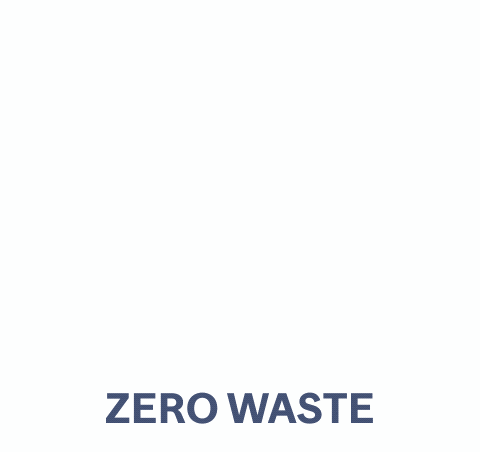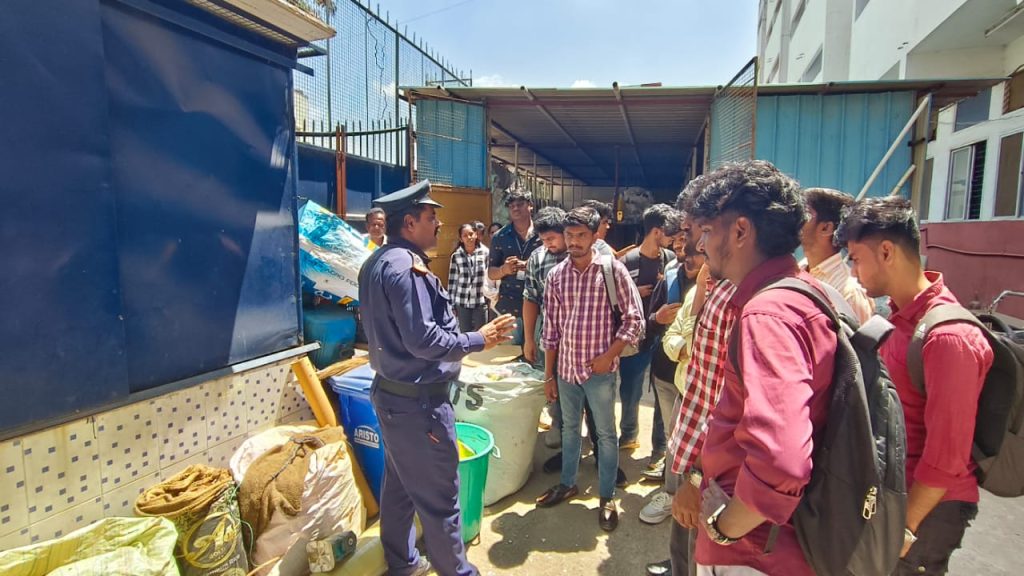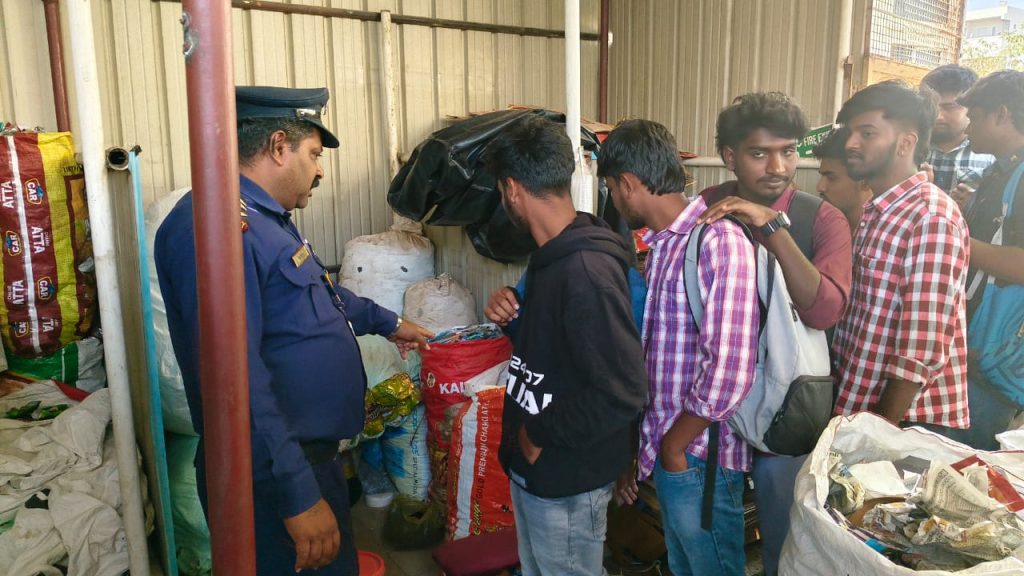Zero Waste
A Zero Waste Campus, following the principles of Solid Waste Management rules 2016, ensures that all single-use items are ZERO meaning completely banned.
THE W in the Waste symbolizes for the WET-REJECT-DRY.
- The WET waste is composted in house, sent to the piggeries & cows.
- The DRY waste i.e. generated is kept in 20 categories, aggregated and sent for recycling.
- REJECT Waste: Items like sanitary pads are handled by an empanelled vendor (in this case, Medicare Company) in a scientifically appropriate manner, ensuring responsible disposal.
How did we do it?
STEP 1: Banned all single use items. Thereby REFUSED & REDUCED the waste. To organize the zero-waste event, we have the cutlery bank in-house.
STEP 2: Wet Segregation at the source
STEP 3: Aggregation & classification of waste collected

Total Dry Waste Generation (in kgs)
(These are the low-quality waste that institutions usually burn or bury)
| Items | Oct 2022 – July 2023 | Jan – Dec 2024 |
|---|---|---|
| Torn Paper | 3449 | 1763 |
| Small Cardboard | 400 | 679 |
| MLP | 1000 | 380 |
| Black Plastic | - | 1819 |
| White Plastic | - | 859 |
| Curd/Milk Packet | 254 | 123 |
| Tetra pack | 420 | 296 |
| Thermocol | 60 | 40 |
| Cloth & Footwear | - | 220 |
| Mix Cover | - | 486 |
| Plastic Pens | 188 | 50 |
| Plastic bags | - | 108 |
| Broken glass | - | 336 |
| Mix Plastic | 124 | 162 |
| Bed-pillows | 50 | - |
| Total | 5945 | 7321 |
Carbon Emissions Saved (in kgs of CO2e)
The below table shows the carbon emissions saved from being released over the years.
| Sl no | Waste type | Total Waste (kgs) | Low-Quality Waste (kgs) | CO2e Saved (kgs) | |||
|---|---|---|---|---|---|---|---|
| Oct 22 - July 23 | 2024 | Oct 22 - July 23 | 2024 | Oct 22 - July 23 | 2024 | ||
| 1 | Paper | 26,577 | 24,222 | 3,849 | 2,442 | 3,849 | 2,442 |
| 2 | Plastic | 3,494 | 7,712 | 1,986 | 3,747 | 5,759 | 10,866 |
Timeline of our Zero Waste journey
OCT 2019
We started our journey
DEC 2019
We achieved our goals
AUG 2021
SOS Children’s home,
Bangalore turns Zero Waste
JAN 2022
TMC Moodubidire accepted the model and promoted it.
10 schools & 2 colleges achieved Zero Waste
2024
Yelahanka Zone – 2 schools changed,
3 others in process of adapting







